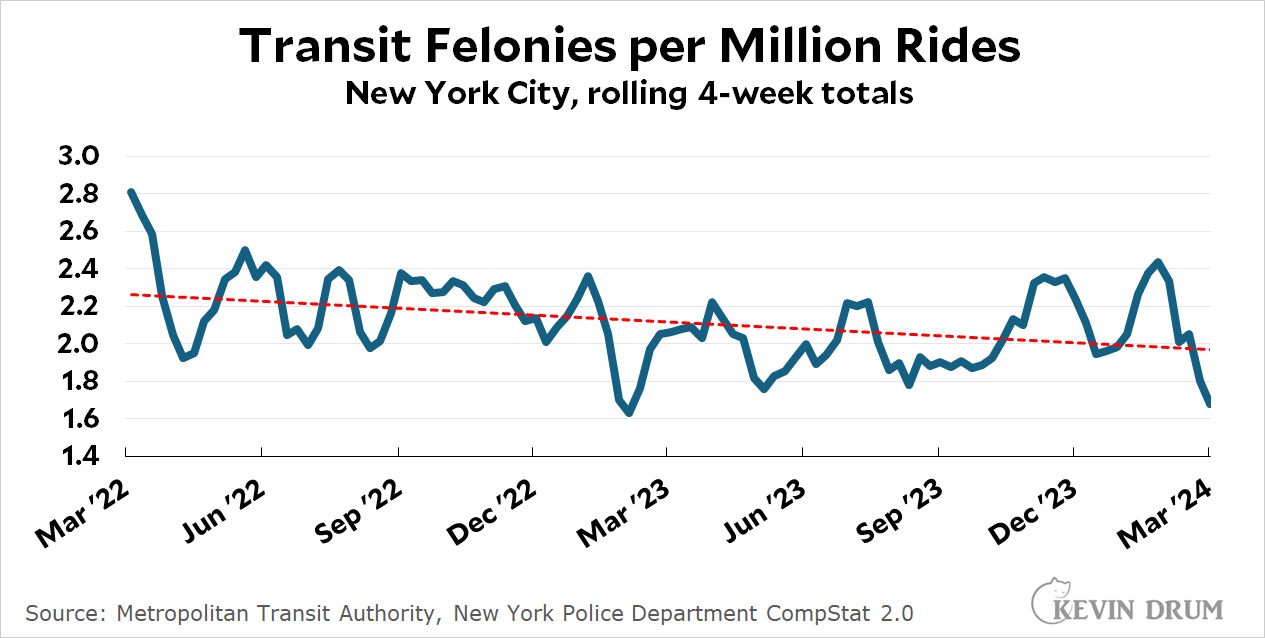The New York City subway is getting a show of force:
Hundreds of National Guard soldiers and State Police officers will patrol the New York City subway platforms and check riders’ bags beginning this week, Gov. Kathy Hochul said on Wednesday.
....Subway safety is a constant concern in New York City, where the system’s recovery is critical to the city’s rebound from the pandemic, and public officials can be as sensitive to the perception that mass transit is dangerous as they are to an actual rise in crime.
I don't live in New York City or use its transit system, but naturally I got curious about this. Is there an actual rise in crime on the subway or only the perception of one?
It turns out that transit crime has been flat over the past two years while ridership has increased about 20%. Here's what that looks like:
 The trendline of transit crime is down 13% over the past two years, and the most recent week had nearly the lowest crime rate of the entire period. Two felonies per million rides seems pretty safe to me!
The trendline of transit crime is down 13% over the past two years, and the most recent week had nearly the lowest crime rate of the entire period. Two felonies per million rides seems pretty safe to me!
Note that these figures are for all transit, including subways and buses, because that's the way New York City reports things. But it's very likely that crime trends are pretty similar for both.







